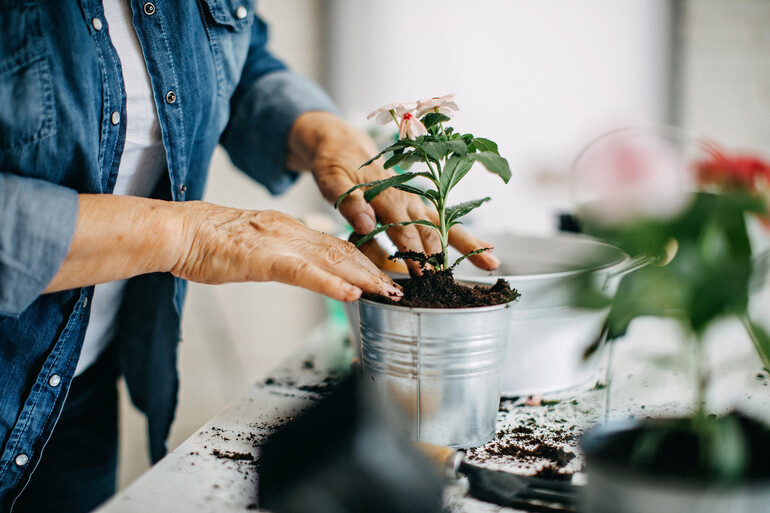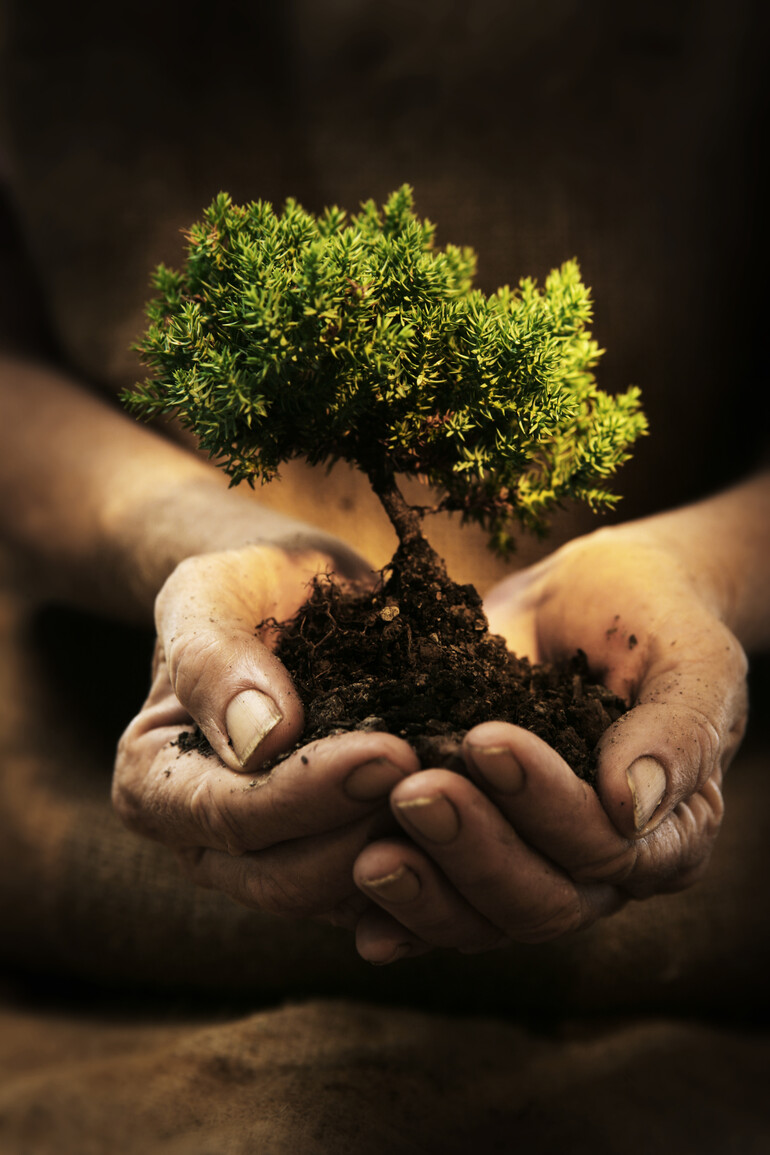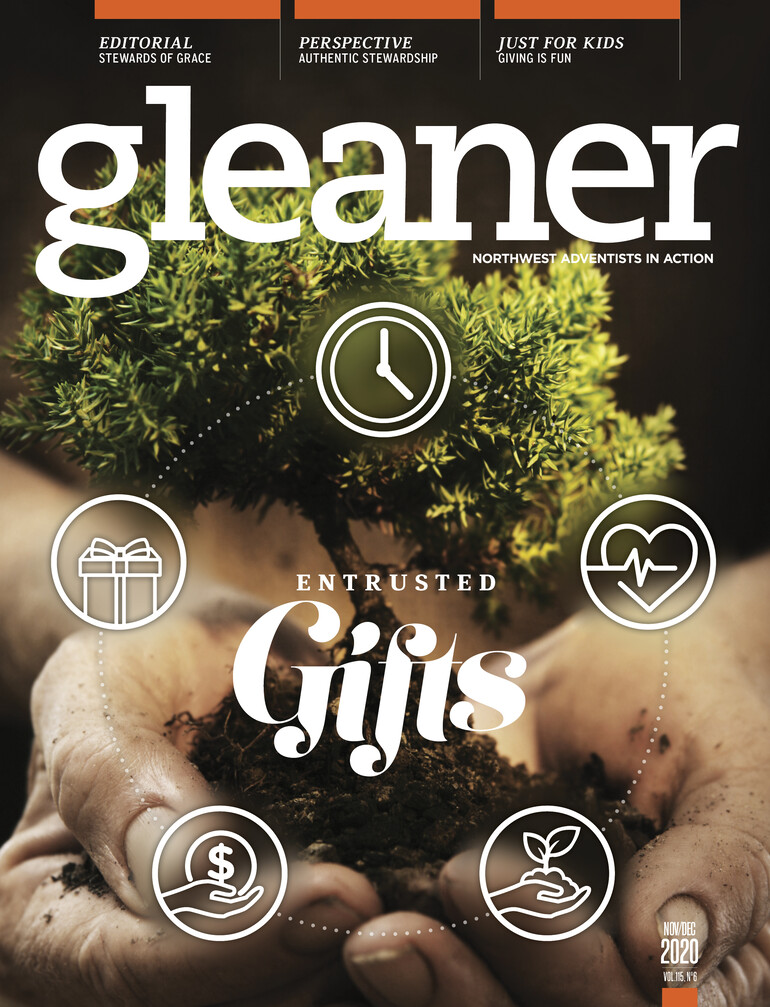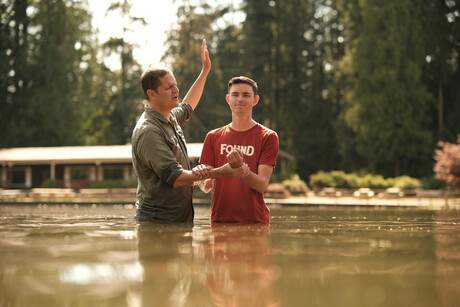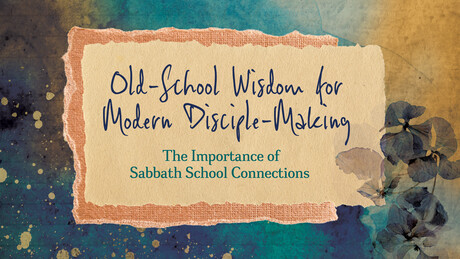Lola and Robert lay in bed, far apart. It was their 10th wedding anniversary, and they weren’t talking to each other. The predicament was inevitable, given the pattern established from the beginning of their marriage.
They married in California and moved to Oklahoma for graduate school three weeks after the ceremony. There was a small Adventist congregation in the university town where they settled. The members welcomed them with open hearts and immediately involved them in the nominated them to church offices.
Up to this point, the couple had attended very large congregations where they simply attended services each Sabbath. Having several jobs in a very small church was novel.
Every year, the little church would ask Robert and Lola to hold two or three positions. They conducted Wednesday evening prayer meeting for several years. They served on the church board and as elder, deaconess, communication secretary and personal ministries secretary. They were even church janitors for a year.
For a time, Lola served as adult Sabbath school superintendent, while Robert taught the adult lesson. One day, the members who had kept the children’s divisions going for years needed a break, and so Robert and Lola took on a new role. Lola taught primary, and Robert managed the juniors. They often took the children on Sabbath afternoon outings, making them happy and giving their parents a true Sabbath rest.
The couple was happy and yet incredibly busy — writing dissertations, working full-time jobs, working for their church. In spite of having little free time, their foray into children’s Sabbath School whet their appetite for working with kids. They became Pathfinder leaders, which led directly to the situation on their 10th anniversary.
They had worked with the Pathfinders all year and came to the beginning of summer. Both Robert and Lola had completed their graduate work and were anticipating a move to Kentucky for new jobs. However, the Pathfinder kids reminded them they had promised them a campout before they left the state.
Robert and Lola scoured their calendars to find a free weekend for the camping trip in the little time they had left before the move. Finally, they found a weekend.
So, on the night of their milestone anniversary, they lay in bed, far apart, not even speaking to each other — Robert in the boys’ tent and Lola in the girls’ tent.1
Does their dedication seem a bit extreme? Are we called to give of ourselves to the point of camping during milestone events in our lives? Are we asked to give past the point of hurting ourselves? The answer isn’t always clear cut, but it seems to come down to our motivation.
Stewardship is the conducting, supervising or managing of something, especially the careful and responsible management of something entrusted to one's care. It’s the idea that everything I have is from God and I will treat those resources with respect.
Robert and Lola are a living example of this important biblical principle. They practiced stewardship with their time and how they worked with others, living out what Jesus talked about in Matthew 25. He says, “I tell you the truth, whatever you did for one of the least of these brothers of mine, you did for me” (Matt. 25:40, NIV).
In this passage, Jesus is inviting us to be caretakers of His people, His creation and all the gifts He has entrusted to each of us. We live in a culture where the world around us distracts from the God who holds it together. But God has given us the freedom to choose how we will manage all He’s given us.
Stewarding My Time
I was recently at the memorial service of a cousin. He was very close to me in age, with two children. Life for that family changed in an instant. It is deeply sobering to realize how quickly this temporary life can come to an end.
I’ve repeatedly heard the clichés “time is precious” and “time is money.” The truth hidden in those sayings is that time is a commodity, a limited resource I have been given. My cousin’s death was a stark reminder that each day is a gift.
Even as I write this, I recognize time is probably one of my weakest areas as a steward. At the end of my life, will my time have simply passed, or will I have used the time to make much of God and love His people? How am I using those hours in which God has kept me alive?
This summer, I’ve spent a lot of time thinking about the dreams and plans God has given me. I asked myself what it would take to bring those to fruition and then set a specific plan for prioritizing what He has kindled in me, to be proactive in obeying His calling in my life. I’m doing my best (and asking for His help all along the way) to make good use of the time He’s given me.
If you’re like me it’s easy to get caught in the details of life. It’s easy to stay busy and not stop and take the needed time to evaluate and plan. I encourage you, if God has sparked an idea in you, to make it happen. Don’t let another month or year go by without acting on what He’s ignited in you.
Stewarding My Health
Not long ago I was getting ready for work. I went to the closet to grab my favorite shirt and discovered an alarming fact. I had only three dress shirts that fit. I wish I could tell you the others had simply worn out. Sadly, I had outgrown them, and not in the best sense of the word.
In that moment, I came to the harsh realization that I have work to do if I am going to take care of the body God has given me. Over time, this realization has grown into a conviction. I need to be a good steward of my body (1 Cor. 6:20).
Subsequently, I’ve worked hard toward a healthy weight by exercising consistently, eating right and drinking enough water every day. Only when I am healthy can I pick up my ever-growing grandson, work the ground in my garden or help an elderly neighbor with a yard project.
Learning to take care of my body has not been easy — it has been a long journey and a lot of hard work, and maintaining it sometimes feels like the hardest part. But it is worth it because the body God has given me is a gift, and I believe He has work for me to do with it.
Stewarding My Life
In Matt. 5:13–16, Jesus talks about being salt and light in the world. Eugene Peterson paraphrases verse 16 this way in The Message translation: “Keep open house; be generous with your lives.”
The concept of being open and generous is one I’ve seen yield rewards through the years. I have many friends who are teachers. Sometimes they get a class difficult to connect with. A few years ago, a friend took on a class like this. It was one of the more difficult teaching assignments of her career. The students simply couldn’t get along. Additionally they had made up their minds not to like their new teacher.
My friend spent considerable amounts of time praying for those quarrelsome students. In addition, she was generous with the amount of time she invested in each student. During recess and lunch, my friend would talk individually with different students. The job description didn’t require that effort, but they chose to be generous with those kids.
At the end of the year, students were in tears because they were moving on to a new classroom and had grown to deeply love my friend. They knew my friend cared for them and wanted them to succeed in all areas of life.
My teacher friend doesn’t even really remember all she said to the students in the course of that year. However, one thing stands out with clarity: Investing in those children and caring about the details of their life made an eternal difference. To this day, the students text or call and chat with my friend. A deep bond was formed because my friend chose to use her life as an instrument of grace toward an angry bunch of kids. When we live out His generosity, we bear God’s image and allow others to see Him more clearly.
Stewarding My Resources
Several years ago, I moved to Michigan for work. Living far from family and friends was deeply challenging. Following visits home, I would sit in the airport waiting to board my plane back to the Midwest and cry.
A dear couple back home in Washington took it upon themselves to send me care packages. Jerry and Carol loved me, and it showed. I still remember the joy of opening boxes they had lovingly filled with thoughtful things I would enjoy reading or that would brighten my home.
Once when I thanked them for their loving generosity, they said, “Oh, it’s not ours. God has blessed us, and we are thankful we can do this.”
This happened years ago, and I still think about their kindness. How easy it is for us to hoard our possessions in the name of “taking care of them.” How ungenerous I have been with things like my car, my home or my computer.
After the conversation with Jerry and Carol, I began reframing my thinking and asking myself how I could use what I have to bless God’s children — and thus bless Him. I remember when I bought my first home, I thought about my home with the same mindset. It was a gift from Him, and I wanted to use the home to bless those God brought my way.
That attitude of stewardship allowed me to use that little house to bless a lot of people through the years. I was just talking with a friend who was a regular visitor for Tuesday taco nights. We reminisced how we grew and learned as we shared time together. God was richly blessing me as I was blessing others.
Entrusted Gifts From Him
My little grandson turned 2 just a few short days ago. Like most 2-year-olds, I’m sure the phrase “mine!” will likely appear in his vocabulary before long.
I wonder where we learn to pick up this need to stake our claim on our toys and possessions. Even as an adult I realize I have the tendency to do the same. I believe this desire to cling to and hold on to what we have is an innate sin marker in all of us. It just doesn’t match up with the character of God I find in the Bible.
What does Scripture have to say about this? Prevalent as a theme in Scripture, stewardship seems to be the resounding answer to that topic.
The psalmist reminds us, “The earth is the Lord’s, and everything in it, the world, and all who live in it” (Psalm 24:1). All my “possessions” aren’t really mine to begin with — they are on loan to me from a gracious God who gives me more than I could ever deserve.
Remember the parable of the bags of gold? Jesus tells His disciples a story in Matthew 25: Before a man goes away on a journey, he gives one servant five bags of gold, another servant two bags and yet another servant just one bag. The first two men use what was given to them to make something more, while the third servant hides away his one bag of gold.
When the master returns, the first two show the master all they earned during his absence. They’d used their time and resources well; they had been good stewards of the gold given them. But the third servant has only the original bag of gold to offer back. He had been stingy and ungenerous; he’d protected his resources instead of using them.
Let me be clear. God’s pleasure is not based on how much we can produce or earn. No amount of good works can earn God’s approval (Eph. 2:8–9). But this parable leads us to ask important questions. If everything we have is a gift, how can we use what we’ve been given to further the announcement of God’s kingdom? How can we value all He’s given us by making much of Him?
As we approach the end of a disturbing and volatile year, I hope and pray we will continue to recognize God as the Gift-Giver and endeavor, with great anticipation and pleasure, to make much of Him by employing the many resources He’s granted us.
1. Adapted from the out of print book Over & Over Again, Volume One. https://www.nadstewardship.org/aiQu9o/uploads/2018/08/OAgain-The_First_Meeting.pdfSeven Simple Ways to Give
- Make someone laugh;
- Spend time with others;
- Volunteer;
- Be emotionally available;
- Perform acts of kindness;
- Compliment someone;
- Spend money on others: your church, your school, those in need, etc.
With the end of the year approaching, prayerfully consider how you can use your resources to support your local church, school and conference. Donations may be made any time via AdventistGiving.org.
Principles of Stewardship
- All we have belongs to God. Our blessings are gifts from God, our generous Creator.
- We are lifelong stewards of the gifts God gives us.
- God invites us to practice stewardship in ways that glorify Him and strengthen His earthly kingdom.
- Our stewardship decisions reveal the relative importance of God in our lives.
- Stewardship greatly impacts the depth of our relationship with God and the quality of our relationships with others.
- As good stewards, we have the opportunity to use our gifts of time, talents and treasure in places that best further God’s kingdom.
- The practice of stewardship changes hearts and strengthen relationships with God. Stewardship is a tie that binds us to God.




